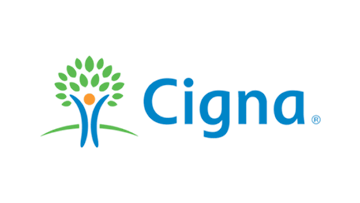
The Importance of Early Intervention
As a key element in addressing mental health issues, early intervention plays a crucial role in preventing long-term challenges. At Idaho Behavior, we recognize that nampa mental health concerns can emerge at any stage of life, but addressing them promptly can make a significant difference. Our team works diligently to identify signs and symptoms early on, tailoring interventions to meet the individual needs of each client.
Research consistently shows that early intervention can alter the trajectory of mental health conditions, leading to more positive outcomes. By providing support and treatment as soon as possible, we help individuals and families navigate challenges more effectively. This proactive approach not only addresses existing issues but also empowers clients with strategies to manage their mental health moving forward.
Our services incorporate evidence-based practices, ensuring that clients receive the most effective care available. By fostering a collaborative environment, we engage clients and their families in the treatment process, enhancing the likelihood of success.
It has been our experience that involving families in early intervention efforts creates a support network that is essential for sustained progress. The journey to mental wellness is not one that individuals must take alone, and we are dedicated to being alongside every step of the way.
Comprehensive Behavioral Health Services
At Idaho Behavior, we offer a diverse array of services designed to address the various facets of nampa mental health. Our offerings include individual therapy, which is tailored to address the specific concerns of each client. This personalized attention allows us to focus on unique challenges, equipping individuals with the tools they need to manage their mental health effectively.
We also understand the power of family dynamics in mental health treatment. Our family counseling sessions bring families together, encouraging open communication and collective problem-solving. By working collaboratively, we can address any relational issues that may impact mental health, fostering a supportive environment at home.
Empowerment Through Skill-Building Sessions
Skill-building is another vital component of our services, providing clients with practical strategies to navigate daily challenges. These sessions are particularly beneficial for children and adolescents, as they learn to manage emotions and behaviors in constructive ways. Through skill-building, clients develop resilience and gain confidence in their ability to cope with life’s stressors.
Our approach to skill-building is grounded in evidence-based techniques, such as cognitive-behavioral strategies that have been proven to enhance coping skills. We ensure that these sessions are engaging and interactive, allowing clients to practice new skills in a supportive setting.
Addressing Anxiety and Depression
Anxiety and depression are among the most common mental health concerns addressed at Idaho Behavior. We approach these conditions with sensitivity and empathy, acknowledging the profound impact they can have on an individual’s life. Our therapeutic interventions are designed to alleviate symptoms and promote lasting change.
Our clinicians employ a range of evidence-based therapies, including cognitive-behavioral therapy (CBT) and mindfulness practices, to help clients manage anxiety and depression effectively. By exploring thought patterns and behaviors, clients are empowered to make positive changes that improve their overall well-being.
In our experience, addressing these issues requires a comprehensive approach that considers both psychological and physiological factors. We work closely with clients to develop a treatment plan that meets their unique needs and supports their journey toward improved mental health.
Support for Autism Spectrum Disorders
Idaho Behavior is committed to providing specialized support for individuals on the autism spectrum. Understanding the unique challenges faced by these individuals is paramount in delivering effective care. Our services are tailored to enhance communication, social skills, and adaptive functioning, promoting greater independence and quality of life.
Team members receive ongoing training in evidence-based practices for autism spectrum disorders, ensuring that they are equipped with the latest tools and techniques. This commitment to education and professional development enhances our ability to support clients in achieving their goals.
It is our privilege to work with individuals on the spectrum, helping them navigate the complexities of their world with confidence and resilience. By fostering an inclusive environment, we celebrate each client’s strengths and encourage them to reach their full potential.
Assisting Individuals with Developmental Disabilities
Our dedication to nampa mental health extends to supporting individuals with developmental disabilities, providing services that cater to their specific needs. We employ a client-centered approach, focusing on enhancing daily living skills and promoting greater independence.
Through collaborative efforts with families and caregivers, we create a comprehensive support network that encourages progress and growth. Our multidisciplinary team works tirelessly to develop individualized treatment plans that address each client’s unique requirements, fostering a sense of empowerment and self-efficacy.
Creating a Safe and Supportive Environment
At Idaho Behavior, we believe that a safe and welcoming environment is crucial for effective mental health treatment. Our facilities are designed to be accessible and inviting, providing clients with a comfortable space to engage in therapy and skill-building activities.
We prioritize client safety and confidentiality, adhering to the highest standards of care to protect our clients’ privacy. This commitment to creating a secure environment allows clients to focus on their treatment without concerns, facilitating personal growth and healing.
By fostering a culture of respect and understanding, we encourage clients to express themselves freely and take an active role in their mental health journey. This collaborative approach enhances the therapeutic process, promoting greater engagement and satisfaction.
Ongoing Professional Development and Commitment to Excellence
Our team at Idaho Behavior is dedicated to maintaining the highest standard of care through ongoing professional development. Staff members participate in regular training and education, ensuring they stay current with advancements in behavioral health.
This commitment to excellence is reflected in the quality of care we provide, as well as in the positive outcomes achieved by our clients. Our focus on evidence-based practices ensures that treatment interventions are both effective and innovative, meeting the diverse needs of those we serve.
We take pride in our ability to adapt to the evolving field of behavioral health, embracing new research and methodologies that enhance our services. This dedication to continuous improvement enables us to make a meaningful impact on the lives of our clients and the community at large.
Promoting Mental Health Awareness in the Community
Raising awareness about nampa mental health is a cornerstone of our mission at Idaho Behavior. We engage with the community through various outreach efforts, providing education and resources to promote mental wellness and reduce stigma.
By fostering open conversations about mental health, we empower individuals to seek help and support when needed. Our community initiatives aim to build resilience and understanding, creating a supportive environment for all.
Through partnerships with local organizations, schools, and healthcare providers, we extend our reach and impact, ensuring that mental health resources are accessible to those who need them most. Our commitment to community engagement reflects our belief that mental wellness is a collective responsibility.
In conclusion, while each individual’s journey is unique, the shared goal of achieving mental wellness unites us all. At Idaho Behavior, we are honored to be part of that journey, providing the support and resources necessary for meaningful change.

Why is early intervention so crucial for mental health issues?
Early intervention plays a pivotal role in mental health care because it can significantly alter the trajectory of mental illnesses. At Idaho Behavior, we focus on identifying signs and symptoms early, which allows us to tailor our interventions to the individual’s specific needs, preventing long-term challenges. By acting promptly, we not only address existing issues but also empower clients with strategies for managing their mental health in the future. Research has consistently shown that intervening early can result in more positive outcomes, and our experience confirms that involving families enhances the support necessary for sustained progress.
What are the key components of comprehensive behavioral health services offered by Idaho Behavior?
We offer a wide range of services tailored to the unique needs of each client, focusing on individual therapy, family counseling, and skill-building sessions. Individual therapy allows us to address specific concerns, while family counseling emphasizes the importance of communication and collective problem-solving within the family unit. Skill-building sessions empower clients, especially children and adolescents, with practical strategies to handle daily challenges, fostering resilience and confidence. By understanding and integrating family dynamics, we create supportive environments that facilitate mental well-being.
How do skill-building sessions help in managing mental health?
Skill-building sessions at Idaho Behavior provide clients with crucial strategies to tackle everyday challenges, particularly benefiting children and adolescents. These sessions focus on teaching individuals how to manage their emotions and behaviors constructively. By using evidence-based techniques like cognitive-behavioral strategies, clients learn coping skills that build resilience. Imagine a child who struggles with anxiety; through these sessions, they learn techniques to calm themselves, which they can apply during stressful situations, enhancing their confidence and emotional regulation. Engaging and interactive sessions enable clients to practice these skills in a supportive environment, making them more effective in real life.
What approaches does Idaho Behavior use to address anxiety and depression?
Anxiety and depression are common concerns that we handle with sensitivity and empathy. Our approach includes evidence-based therapies such as cognitive-behavioral therapy (CBT) and mindfulness practices. These techniques help clients explore and modify thought patterns and behaviors, leading to improved mental well-being. By addressing these issues comprehensively, considering both psychological and physiological factors, we tailor treatment plans to each client’s needs. For example, a young adult suffering from depression might work with a therapist to challenge negative thoughts and develop healthier coping mechanisms. This personalized method ensures clients receive support that aligns with their journey towards mental wellness.
How does Idaho Behavior support individuals with autism spectrum disorders?
Supporting individuals on the autism spectrum involves understanding their unique challenges and providing tailored services to enhance communication, social skills, and adaptive functioning. Our team undergoes ongoing training in the latest evidence-based practices to ensure effective care. For instance, we might work with a child on the spectrum to improve their communication skills, using personalized techniques that consider their strengths and interests. By creating an inclusive environment, we celebrate each client’s abilities and support their journey towards greater independence and quality of life. This commitment to education and personalized care is essential for fostering confidence and resilience in our clients.
What strategies are employed by Idaho Behavior to assist individuals with developmental disabilities?
We adopt a client-centered approach that focuses on enhancing daily living skills and promoting independence for individuals with developmental disabilities. By collaborating closely with families and caregivers, we create a comprehensive support network that facilitates progress. Our multidisciplinary team works on developing individualized treatment plans that cater to each client’s unique needs. For example, we might focus on improving a client’s ability to perform everyday tasks independently, enhancing their self-efficacy and empowerment. These efforts, supported by a compassionate understanding of each individual’s circumstances, help foster meaningful growth and development.
Why is creating a safe and supportive environment important for mental health treatment?
Creating a safe and supportive environment is fundamental to effective mental health treatment because it allows clients to engage fully and openly in the therapeutic process. At Idaho Behavior, our facilities are crafted to be welcoming and accessible, ensuring that clients feel comfortable and secure. Safety and confidentiality are top priorities, allowing clients to focus on their healing journey without worries about privacy. This respectful and understanding setting encourages clients to express themselves freely, enhancing their engagement and satisfaction with the treatment. If clients are wondering how the environment impacts their therapy, consider how a sense of security can facilitate personal growth and healing.
How does Idaho Behavior ensure the highest standard of care through professional development?
Continuous professional development is integral to maintaining high-quality care at Idaho Behavior. Our team participates in regular training and education to stay current with advancements in behavioral health. This dedication ensures that our treatment interventions are both effective and innovative, catering to the diverse needs of our clients. For example, by embracing new research and methodologies, we can offer cutting-edge techniques that enhance our services. This focus on excellence not only reflects in the quality of care we provide but also in the positive outcomes our clients achieve. Do you think ongoing learning impacts the therapist-client relationship? Share your thoughts below.
What initiatives does Idaho Behavior undertake to promote mental health awareness in the community?
We are committed to raising mental health awareness through various community outreach efforts. By providing education and resources, we aim to promote mental wellness and reduce stigma. Engaging in open conversations about mental health empowers individuals to seek help and support when needed. We partner with local organizations, schools, and healthcare providers to extend our reach, ensuring that mental health resources are accessible to those who need them most. This collective responsibility fosters resilience and understanding within the community, aligning with our belief that mental wellness is a shared goal. How do you engage with mental health initiatives in your community?
Mental Health Resources
- National Institute of Mental Health (NIMH) – The NIMH is the leading federal agency for research on mental disorders. They provide valuable information on mental health conditions, treatment options, and research advancements.
- American Psychiatric Association (APA) – The APA is a professional organization representing psychiatrists in the United States. They offer resources on mental health topics, advocacy efforts, and guidelines for psychiatric practice.
- Substance Abuse and Mental Health Services Administration (SAMHSA) – SAMHSA is a government agency that works to improve the quality and availability of treatment services for mental health and substance use disorders.
- National Alliance on Mental Illness (NAMI) – NAMI is a grassroots mental health organization dedicated to providing support, education, and advocacy for individuals and families affected by mental illness.
- MedlinePlus – Mental Health – MedlinePlus, a service of the National Library of Medicine, offers reliable information on mental health conditions, treatments, and mental wellness resources.




